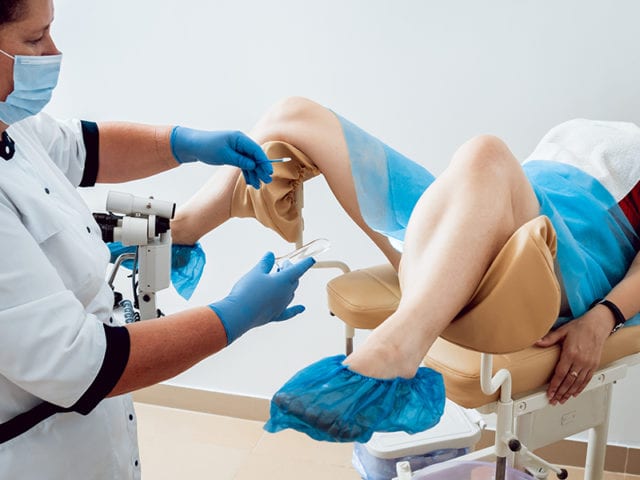Can you survive a sexless marriage? Also, what constitutes a sexless marriage? Well, the jury is out on what’s a healthy frequency for sex between couples but what most experts agree on, is that a mismatched sex drive at different times in your life is extremely common among couples. This reduced desire can definitely be improved with certain interventions unless one or both of the partners have lost complete interest in sexual activity, including but not limited to masturbation and sexual fantasies.
Step 1: Let’s Talk About Sex (Or, Lack Thereof)

When it comes to relationships, nothing gets better on its own. In fact, the longer you ignore the lack of sex, the more resentment it builds. Oftentimes, you may lose the ability to climax or feel turned on by your partner because of this resentment.
“An open-minded two-way discussion in a secure, non-judgmental manner with the focus being on finding the way forward is the best way to broach the subject,” says Dr Kedar Tilwe, Psychiatrist and Sexologist, Fortis Hospitals (Mulund & Vashi).
Here are some questions you both must address together:
- Do you think the frequency/quality of sex has reduced?
- When did it begin to decline?
- What are your feelings towards the change in your sexual relationship?
- Are you willing to fix the problem without judgement, blame and resentment, even if it takes time?
The purpose of these questions is to help the couple work together and create a safe space for communication, support and revival of intimacy. While many women relate their partner’s sexual desire to feelings of attractiveness and love, many men find it hard to acknowledge reduced desire because of the long-perpetuated idea that men are more sexual of the two genders, and a lower sex drive would only mean there’s something ‘wrong’ with the man.
Our sexual prowess is intricately tied to our sense of self-esteem, ego, and a variety of emotions. When dealing with such a delicate subject matter, it is very important for a couple to get on the same page before they begin trying to fix their physical relationship.
Step 2: Identify & Fix The Problem

Unless one of the partners has an irreversible medical condition that impedes their sexual desires and ability to perform, you have a fighting chance of reigniting your dwindling physical relationship.
And then there are medical problems that can be fixed with the intervention of a specialist. For example, “In women, the presence of underlying gynaecological conditions such as Genito-Pelvic Pain Disorder, inadequate vaginal lubricant, and Vaginismus can lead to low sexual drive. In men, performance anxiety, metabolic disturbances such as low testosterone levels and prolactin level elevations have been associated with a decreased libido,” says Dr Tilwe. Men may also experience premature ejaculation or erectile dysfunction, both of which can be treated by a doctor.
Here are some non-medical causes & solutions to deal with lowered sex drive:
Problem: You Have A Higher/Lower Sex Drive Than Your Partner
Solution: Once you’ve acknowledged this mismatch, take charge of the moments that can help sync up your desires. For example, a study suggests that men feel most aroused in the mornings while women are usually in the mood when they’re feeling relaxed at the end of the day and closer to bedtime. Depending on which partner has lowered libido, the other can initiate sex at an hour their partner is likely to be more responsive to arousal.
Also, “Focus on sensuous touch rather than penetrative sex to gain the highest amount of pleasure from intercourse,” says Dr Tilwe.

And lastly, start communicating your desires, both verbally and physically. Based on your comfort, you can try dirty talk, sex toys, role-playing and narrate while you masturbate to get your partner going. You could also help steer your partner on how to turn you on and be just as expressive when you climax. This will help reinforce their confidence in being able to satisfy you sexually.
Problem: Sex Is Not On Your List Of Priorities
Solution: It’s common for couples to put sex and intimacy on the shelf as their lives get busy. This often happens after having children, or when parents move close/in your home, if careers take flight, and sometimes even if two people have been together for a long period of time.
The truth is, if you don’t make time for sex, you may end up in a sexless marriage without even realising how and when you got there.
No matter how busy, be sure to be physically affectionate when around your partner. It could mean a simple head on the shoulder, arm on the waist, or peck on the cheek. It’s important to keep the physical cues going.
Also, it’s not crazy to actually schedule a time for sex every week/month. If you can set aside time for work, family, kids, etc, then there’s no reason sex doesn’t deserve the same kind of seriousness and prioritising as everything else in your life.

Lastly, the time you spend with your partner alone should be sacred. Stop taking the kids everywhere, inviting the whole office home on weekends, or going on vacations with the entire family all the time. Once a week, try and catch a movie together, go for dinner, or even play board games before going to bed. Once every three months, take an overnight vacation together. And once every year, try and travel somewhere as a couple.
Problem: There’s An Emotional Disconnect Between You & Your Partner
Solution: “It’s important to remember that marital discord or relationship disharmony is one of the commonest causes of low sexual drive,” says Dr Tilwe. And contrary to popular belief, it’s not just women—both genders are equally capable of feeling emotionally disconnected.
Each partner should be open about how he/she feels about the decline in sexual intimacy, when did the problem begin, and what about their own/their partner’s behaviour is affecting their sex drive.
This is a tough conversation to have, which is why Dr Tilwe recommends marital counselling for couples who aren’t being able to communicate honestly. “A mediator can help the couple identify their differences. Trying to revitalise the romance and making each other feel special and cared for, helps in reducing anxiety and rediscovering the drive.”

Oftentimes, a counsellor can help unearth deeper problems you may not be willing to share with each other right off the bat. These could include:
- Mental health issues like anxiety or depression
- Poor body image or low self-esteem
- History of physical or sexual abuse
- Previous negative sexual experiences
- Using sex as a weapon to punish or control your partner
- Infidelity or trust issues
- Resentment or feeling unappreciated, and other unresolved conflicts
- A perceived/real power imbalance in the relationship
Problem: Something Life-Changing Has Taken Place
Solution: It’s natural for a man’s libido to reduce after the age of 40 because of a natural fall in testosterone levels. Similarly, major life changes like pregnancy, menopause and hormonal imbalances can lower sexual desire among women.
Apart from age, factors like moving to a new city, starting a new business, financial insecurity, frequent drinking, weight gain, increased stress, surgery, certain medications, and often underlying health conditions can all cause a dip in your libido.

Dr Tilwe explains: “Sexual drive is a dynamic process that will naturally fluctuate over time for each person; so it is common to have a libido mismatch with your partner at some points in your life. As a relationship progresses, be open to shifting the focus from purely physical intimacy to emotional intimacy and practical concerns of daily life as well. This may make you reprioritise and focus on the quality, rather than the frequency of sexual intercourse.”
While big life changes are fleeting and temporary, it is important to not let them dictate the fate of your relationship. Wait out the drought and keep a positive attitude as you reignite your relationship with baby steps: First comes emotional intimacy, then physical intimacy, then foreplay and penetrative sex.
“Identifying the underlying cause and taking the steps necessary to rectify it is of paramount importance. You can enlist the help of a doctor near you to rule out and treat any medical or surgical cause,” says Dr Tilwe.
And just remember, even if your sex drive is lower than it once was, your relationship may be stronger than ever. So, don’t keep focusing on the negatives.
PSA: Use Masturbation To Feel Good Solo Or Even Improve Your Sex Life!
You can use masturbation as a way to improve your sex life in many ways:
- Touching yourself can make you more confident about your body.
- It helps you understand your body and what makes you feel good, which you can then communicate to your partner while in bed together.
- You can masturbate solo or together, or even get a little voyeuristic and be each other’s audience.
- Did you know that masturbation improves stamina and can help prolong sex while reducing the chances of premature ejaculation? This can be a problem solver for some couples.
- The act of mutual masturbation can be very stimulating for both partners and can serve as foreplay to make sex less painful and more enjoyable.

